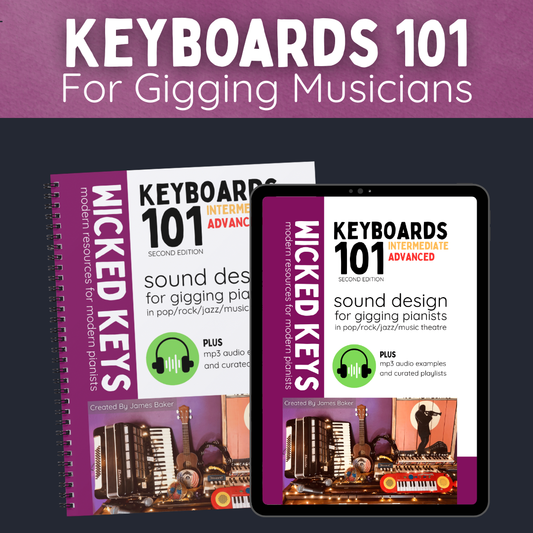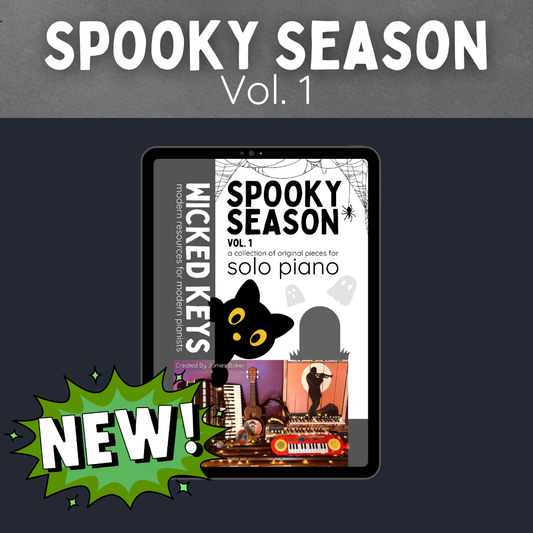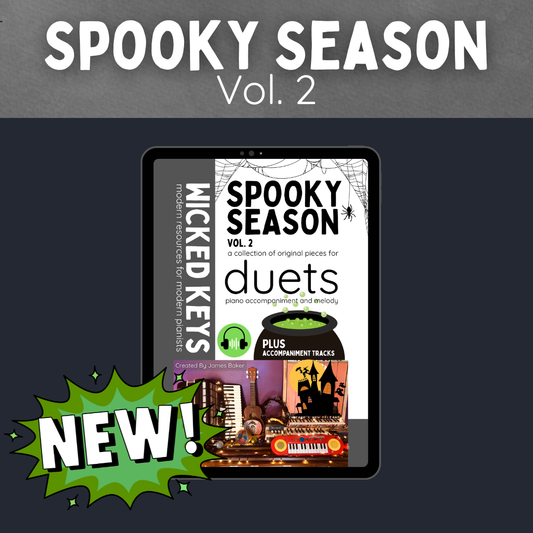
Unlocking Music: Why Classical Pianists Should Learn Lead Sheets 🎹
Share
Unlocking Music: Why Classical Pianists Should Learn Lead Sheets 🎹
Discover how learning lead sheets helps classical pianists improve chord recognition, deepen harmonic analysis, and unlock creativity at the piano.
Introduction
If you’re a classical pianist, you’re used to relying on the score. Every dynamic, articulation, and rhythm is laid out for you — precise and complete. But what if there was a way to go deeper, to truly understand the harmony behind the notes and even gain the freedom to create your own versions of music?
That’s where lead sheets come in. They might look simple — just a melody with chord symbols — but for a classically trained musician, they can be a game-changer. In this post, we’ll explore why learning lead sheets is one of the smartest steps you can take as a pianist, and how it can make your playing more confident, creative, and connected.
1. Sharpen Your Chord Recognition 👀
In classical pieces, harmonic analysis is key — but when you practice with lead sheets, chord recognition becomes second nature. Instead of only memorizing finger patterns, you’ll start to see and hear the harmony in real time. Suddenly, cadences, modulations, and progressions in your Beethoven sonata make much more sense.
2. Understand the Structure Beneath the Notes 🏗️
A score shows you every detail, but sometimes it can feel overwhelming. Lead sheets strip music down to its essentials: melody + harmony. Working this way helps you zoom out and notice the bigger picture — how chords support the melody, how phrases are built, and how tension and release shape a piece. That deeper structural awareness carries over when you return to your classical repertoire.
3. Interpret with More Intention 🎭
When you understand the harmony, your interpretation becomes more meaningful. You’ll naturally highlight key progressions, shape phrases with greater nuance, and bring out inner voices more convincingly. In short: you’ll sound less like you’re “playing the notes” and more like you’re telling the story of the music.
4. Build Improvisation & Flexibility ✨
Improvisation might not be the first thing you associate with classical playing — but don’t forget, many great composers (Bach, Mozart, Liszt) were masters of improvisation. Lead sheets give you the chance to experiment: reharmonize a melody, add ornamentation, or try out new textures. This flexibility can make you more confident when performing, and can even breathe new life into familiar classical pieces.
If you’d like structured guidance on building these skills, Lead Sheet 101 shows you step-by-step how to simplify complex chords, voice harmonies across both hands, and apply comping techniques with ease.
5. Expand Your Musical Identity 🌍
Finally, learning lead sheets connects you to other musical worlds — jazz, pop, rock, and beyond. You’ll start to see how those styles intersect with classical traditions, and your own playing will gain new colors, influences, and possibilities.
The Bottom Line
Learning lead sheets isn’t about replacing your classical studies — it’s about enhancing them. With stronger chord recognition, better structural insight, and more creative freedom, you’ll return to your classical repertoire with fresh eyes (and ears).
So next time you sit down at the piano, don’t just reach for the score. Try a lead sheet. You might be surprised at how much it deepens your understanding — and your love — of music. 🎶




![Lead Sheet 101 eBook [Single License] Pay What You Can](http://wickedkeys.com.au/cdn/shop/files/wickedkeys.com.au.png?v=1760493645&width=533)
![An Easy Christmas eBook [Single License] Pay What You Can](http://wickedkeys.com.au/cdn/shop/files/Product_Cards-2.png?v=1760559825&width=533)








![[COMING SOON] Junior Jazz Vol. 1](http://wickedkeys.com.au/cdn/shop/files/22_497fc077-4911-4527-bfad-a7749288e7ca.png?v=1759207635&width=533)
![[COMING SOON] Beginner Blues Vol. 1](http://wickedkeys.com.au/cdn/shop/files/23_844563d1-4c1b-4d59-97de-72c8f9c5122a.png?v=1759207694&width=533)
![[COMING SOON] Accompanying 101](http://wickedkeys.com.au/cdn/shop/files/18_f4c8b907-7385-46b3-801a-77b28cf7d83d.png?v=1759143867&width=533)
![[COMING SOON] Lead Sheet 102](http://wickedkeys.com.au/cdn/shop/files/17_5e2c6a47-e49a-4de2-b4d8-c72a4ed236f6.png?v=1759143867&width=533)
![[COMING SOON] The Business of Teaching Music](http://wickedkeys.com.au/cdn/shop/files/13_9b7bd319-bf2d-4b22-997d-4df4caa52375.png?v=1759143866&width=533)